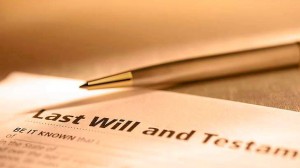If super is not my estate asset, what else is not my estate asset?
In simple terms, estate assets are assets that you own in your personal name at the date of your death. These are the assets that are dealt with in your Will. It is important to know that not all assets are estate assets, so what you say in your Will will not effect who gets them when you die.
Assets that are not included in your estate, other than your superannuation which I explained here, are:
- assets you own jointly with someone else,
- asset in a family trust or some other trust,
- assets owned by a company, whether you are the sole shareholder and director of that company or not, and
- life insurance, where the policy allows you to nominate a beneficiary directly, and your name someone other than your estate.
Assets that form part of your estate will be dealt with in accordance with the instructions in your Will. Assets that are not included in your estate will be dealt with in accordance with other documents, or in accordance with the law (just like your superannuation is dealt with in accordance with the superannuation trust deed and your binding death benefit nomination).
Assets that you own jointly with someone else
These assets often include bank accounts, real estate, shares, and term deposits. They automatically transfer to the surviving joint holder, in accordance with survivorship laws.
Assets in a family trust or some other trust
These assets are dealt with in accordance with the trust deed. So, you need to review your trust deed yourself, or have a solicitor review it for you so that you understand what will happen with your beneficial interest in the trust.
Assets owned by a company
Some people get confused and believe they own the assets that their company owns. But you don’t. The reason you set up a company in the first place was to separate assets from your personal ownership and the company ownership, to protect assets. Assets of the company stay owned by the company.
What you do own is the shares in the company. You can leave these to whomever you want in your Will. Often a shareholder will have a right to appoint a director, so this is how you transfer the ownership and control of the company.
Life insurance policies
A life insurance policy could be handled either way. It could be automatically paid into your estate, and therefore be handled under the instructions in your Will. Or some policies allow you to nominate a beneficiary of your life insurance, so you could nominate your spouse or your children to have the life insurance paid to them directly.
So don’t think that your Will is the be all and end all of your planning. Each of your assets needs to be looked at individually to determine how it will be transferred, and how your hard-earned assets pass onto the next generation.




